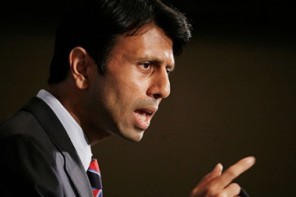The missionary group Christian Freedom International issued a call this week for renewed humanitarian aid to Burma. The impetus for the announcement was the success of Sylvester Stallone’s Rambo, which depicts the brutal oppression of Burma’s Karen people. There’s a certain irony in this fusion of missionary and mercenary; namely, that the entire point of Rambo is to argue against humanitarian aid.
At the film’s beginning, the eponymous warrior, living in seclusion in Thailand, is approached by a group of Christian missionaries who are seeking river transport into Burma. The missionaries are bringing food and medical aid to Karen villagers, and at first Rambo refuses, telling them that their aid is useless. If you’re not bringing guns, he argues, “you’re not changing anything.” Before long he relents, but there is more moral conflict during the journey when Rambo kills a group of river pirates and the leader of the missionaries berates him for his violence. Inevitably, the missionaries are taken prisoner by government troops shortly after their arrival in Burma, and their church’s pastor hires Rambo again, this time to bring a group of mercenaries on a rescue mission. Much mayhem ensues, but by the time the last drop of CGI blood hits the ground the good guys have won. The truth didn’t set the church group free, but the huge machine gun did.
In the end, Rambo upholds the statement that non-military, humanitarian aid to oppressed groups is useless. The missionaries are presented as naive and ineffectual; a handful of well-armed soldiers, the film claims, can do far more good. But the story’s message cuts deeper than that: it’s ultimately a repudiation of the core of Christian ethics, a 90-minute argument against turning the other cheek. The film’s moral climax comes when the leader of the missionary group, who earlier scolded Rambo for killing the river pirates, brutally kills a government soldier with a rock. Pastor Erik, a blogger, calls this “the violence we cannot commit but we need for our own protection.”
Conservative reviewer S. T. Karnick sees this character’s violent transformation as a cheerily synthesizing statement about “the practical need for protectors and warriors in a sinful world.” They couldn’t be more off-base. Rambo doesn’t depict a synthesis of humanitarian and military responses to oppression; it wholeheartedly rejects the former in favor of the latter. It isn’t about helping the helpless, but about hurting the hurtful—the inverse of the Sermon on the Mount.
Christian Freedom International is right to seek greater visibility for the humanitarian crisis in Burma. Broader humanitarian aid is needed there, and there’s no doubt that one of Rambo’s goals was to raise awareness. But CFI and other missionary groups should be careful about whose wagon they hitch themselves to—in this case, the messenger undermines the basis of their message.




